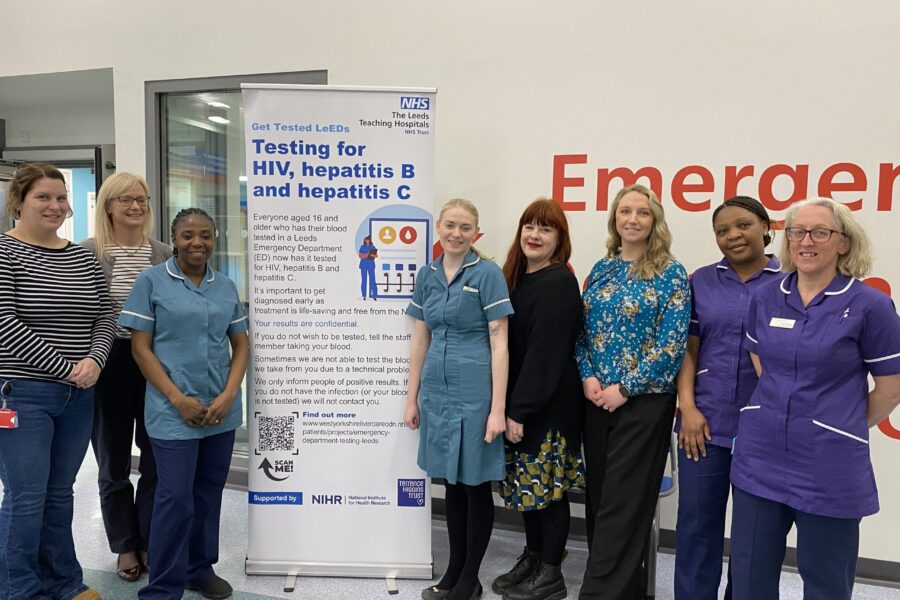
Patients who attend the Emergency Departments at Leeds General Infirmary and St James’s University Hospital and receive routine blood tests are now likely to be tested for HIV, hepatitis B and hepatitis C, regardless of symptoms, unless they opt out.
With National HIV Testing Week running from February 10, staff at Leeds Hospitals Trust want patients to be aware of the benefits of getting tested.
Dr Emma Page, Consultant in Virology at Leeds Teaching Hospitals NHS Trust, said: “Offering HIV and hepatitis tests in our Emergency Departments can save lives and give people access to the latest and most effective treatments.
“It’s hugely important to know your diagnoses for these viruses. The treatments that can be offered now for HIV and hepatitis are really game-changing.
“We know that many people with blood borne viruses have not been tested because they or their health care professionals do not believe they have been at risk. We hope through this scheme we can reach people who might not attend traditional testing services such as sexual health clinics, and remove the stigma of testing.”
The national scheme is being rolled out in hospitals across the country, to offer treatment for thousands of people in England who are thought to be living with an undiagnosed blood borne virus.
HIV treatments can suppress the virus, allowing people to live a normal life and prevent infection from being passed on. Hepatitis C can potentially be cured, and treatments for hepatitis B and C can reduce the risk of developing serious illness or complications, such as liver cirrhosis and cancer.
In the first three months of the scheme in Leeds, five new cases of HIV have been diagnosed and three more have been identified who were not receiving treatment. Forty new or active cases of hepatitis B or C were diagnosed.
Posters are available in the Emergency Departments at St James’s Hospital and Leeds General Infirmary, informing patients about the testing, and information is available in a range of formats and languages.
Anyone aged 16 and over who has blood tests taken as part of their emergency care at Leeds General Infirmary or St James’s University Hospital is likely to be tested for HIV, hepatitis B and hepatitis C unless they opt out and decline. Anyone who tests positive will be contacted within two weeks.
The scheme supports the UK Action Plan to end all new HIV cases by 2030 through earlier identification and detection and the NHS England programme to eliminate Hep C by 2025. Leeds is also a ‘Fast-Track City’ – part of a global initiative to end the HIV, TB and viral hepatitis epidemics by 2030.
Dr Sarah Schoeman, Genitourinary Medicine (GUM) Consultant at Leeds Teaching Hospitals NHS Trust, and Leeds Fast-Track City Leadership Group Chair said: “Normalising blood-borne virus testing is essential – it saves lives and helps tackle the stigma associated with these infections. We are so pleased and proud that we are able to offer routine testing for these important infections within our Leeds emergency departments again.
“This initiative is another significant step towards Leeds reaching our Fast-Track City goals of zero new HIV infections and AIDS-related deaths, zero new viral hepatitis infections, zero new TB infections and zero stigma related to all of these infections in Leeds by 2030.”
More information about the testing programme is available at Get Tested LeEDs – West Yorkshire Liver Care Network